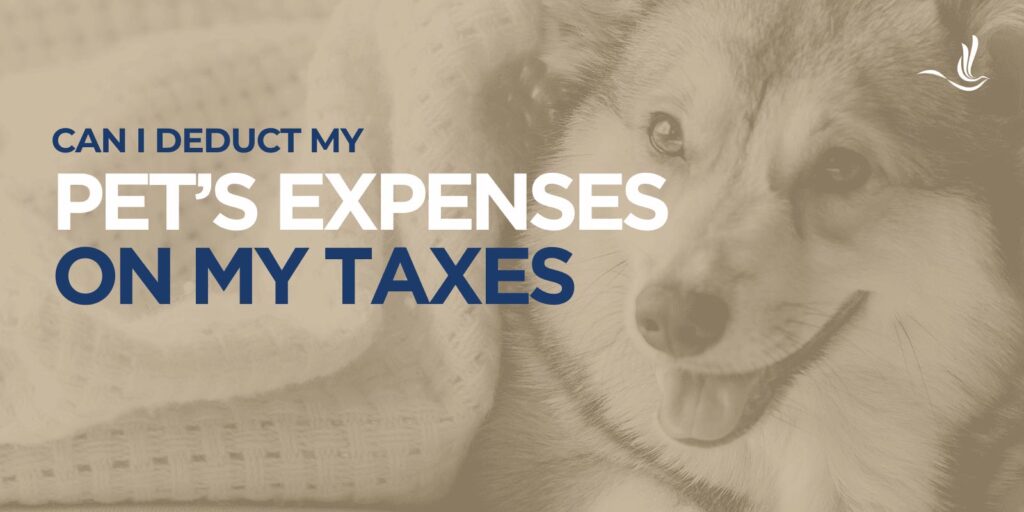
For many people, pets are an integral part of their lives, providing companionship, comfort, and joy. However, being a responsible pet owner can come with a substantial financial commitment. As tax season approaches, you may be wondering if there’s any way to offset some of those expenses by deducting them on your tax return. While the tax code is complex, there are some circumstances in which you can deduct pet-related expenses. In this article, we will explore the guidelines and limitations associated with deducting pet expenses on your taxes.
Service Animals
The IRS does allow for certain deductions related to service animals. If you have a service animal that is trained to assist you with a disability, you may be able to deduct expenses related to the care and maintenance of the animal as a medical expense. This can include the cost of food, veterinary care, and other necessary expenses. However, they must be directly related to the service animal’s well-being and performance of its duties.
That said, you can only deduct your pet’s expenses if it performs specific services for your medical well-being. This can include guiding a blind person or helping an immobile person. It can also include alerting a deaf person or assisting an epileptic person during seizures. If your pet performs these services, you may be able to deduct expenses using Schedule A. In 2023, taxpayers can deduct expenses that are more than 7.5% of their adjusted gross income. Be prepared to show the IRS proof that you require this animal’s help for medical reasons. Also, note that Schedule A is for itemized deductions. This means if you plan to deduct your pet’s medical expenses, you will need to itemize and cannot take the standard deduction.
Guard Dogs
If you use a dog for security or protection purposes in your business, you may be eligible to deduct expenses associated with their care. These expenses can include the cost of dog food, veterinary care, and training. You may also deduct necessary items to maintain the dog’s effectiveness in guarding your business property. Some important things to note are that you cannot deduct the actual cost of purchasing the dog. You can only deduct expenses incurred during the dog’s “working” hours. Expenses incurred during down time do not qualify for tax deductions.
Business-Related Expenses
In some cases, you may be able to deduct pet-related expenses if they are directly related to your business. For example, let’s say you run a pet-sitting business or a farm. The expenses incurred in caring for the animals can be considered a legitimate business expense and may be deductible. It’s important to keep records and consult with a tax professional to ensure you are following the appropriate tax regulations.
Foster Pet Expenses
If you foster pets for a recognized charitable organization, you may be able to deduct some of these expenses. These deductions are often considered charitable contributions. They can include costs related to food, veterinary care, and other items necessary for the animals’ well-being during their stay with you.
Pet-Related Expenses Not Deductible
Most expenses related to pets that do not fall into the categories mentioned above are not tax-deductible. This means expenses for the general care and well-being of your personal pets are not eligible. This includes food, grooming, toys, and routine veterinary care. The IRS typically does not consider these expenses as eligible deductions.
Tax Help for Pet Owners
While the tax code may provide some opportunities for deducting pet-related expenses, it’s essential to be well-informed and consult with a tax professional to ensure that you are in compliance with the relevant regulations. Deducting pet expenses on your taxes is generally limited to specific situations, such as service animals, guard dogs, business-related expenses, charitable contributions, and fostering pets for recognized organizations. For most pet owners, the day-to-day expenses of pet care are not tax-deductible. Always keep meticulous records and consult with a tax expert to make sure you are taking full advantage of any potential deductions while staying within the bounds of the law. Optima Tax Relief is the nation’s leading tax resolution firm with over $1 billion in resolved tax liabilities.
If You Need Tax Help, Contact Us Today for a Free Consultation